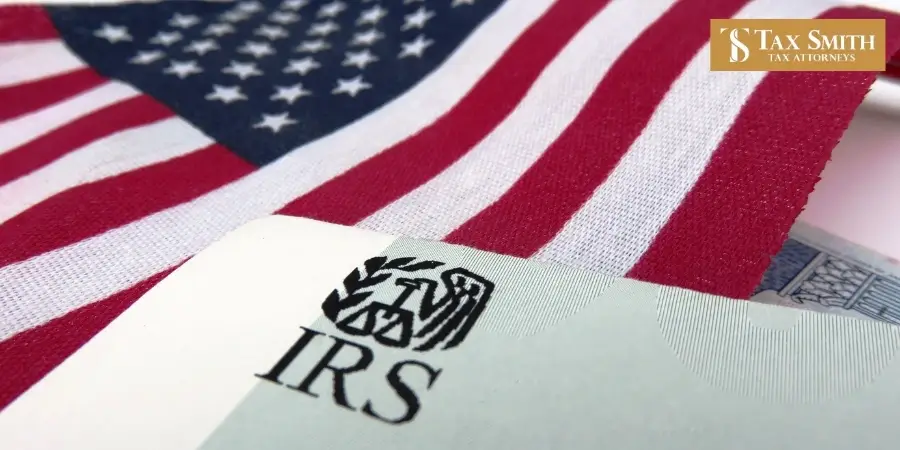1548 The Greens Way – Ste. 4 Jacksonville Beach FL 32250
Miami Penalty Abatement Attorney
Miami Penalty Abatement Lawyer
Financial and personal emergencies can cause many taxpayers to fall behind on their taxes. When the Internal Revenue Service (IRS) assesses penalties for the unpaid taxes, this can increase the financial strain and uncertainty of the situation. If the penalties and taxes go unaddressed, they will continue to accrue interest. You shouldn’t ignore this situation. A Miami penalty abatement attorney can consider your options, including potentially erasing the penalties you owe.

At TaxSmith, LLC, our attorneys understand how destabilizing it can feel to owe the IRS tax debt and be unable to repay it. For decades, we have helped individuals, families, and business owners navigate their penalty abatement cases. There are many methods to lower your tax liability or give yourself more time to repay it, such as payment plans or making the debt as Currently Not Collectible. A Miami penalty abatement lawyer from our team can look at your unique financial circumstances.
You can negotiate your debt if you can’t repay the full amount, including applying for penalty abatement. The closest Taxpayer Assistance Center Office is located right in downtown Miami, at 51 S.W. First Avenue in Suite 311. Our firm can prepare for negotiations or represent you.
What Is Penalty Abatement?
Penalty abatement is an option the IRS offers for eliminating penalties they’ve assessed. However, this is only possible if the penalty was assessed because of something outside your control or you qualify for first-time penalty abatement.
Penalties can be assessed for many reasons, such as:
- Failure to file on time
- Failure to pay
- Inaccurate information
- Failure to provide accurate and on-time information returns
- Underpayment of taxes
- Failure to deposit
- Paying with a dishonored check
- Excessive claim for refund or credit
There were more than 22.4 million assessments for failure to pay penalties on individual income tax filings in Fiscal Year (FY) 2024, along with 595,398 accuracy penalty assessments. If you are assessed penalties and ignore them, they will continue to grow with interest. However, the penalty may have been assessed in error. Perhaps there was reasonable cause outside your control that led to the penalty. If so, you could potentially clear it.
What Is Reasonable Cause?
Reasonable cause generally applies when you, as a taxpayer, exercised ordinary care and acceptable prudence but were unable to comply with your tax obligations. This may apply to a penalty for one or multiple tax filings. The IRS decides on a case-by-case basis whether your situation qualifies for penalty abatement.
The exact reasonable cause will depend on the type of penalty. For failure to file or failure to pay penalties, reasonable cause may include:
- A fire
- A natural disaster
- A civil disturbance
- The inability to secure the records needed to file
- Death in your immediate family
- Serious illness affecting you or someone in your immediate family
- An unavoidable absence impacting you, such as rehabilitation or imprisonment
- System errors preventing you from paying or filing your taxes on time
Other penalties have different reasonable causes, and not all penalties are eligible for abatement under penalty abatement laws. When you hire a penalty abatement attorney, they can review your unique financial and personal circumstances to determine if penalty abatement is possible.
Why Should I Hire a Penalty Abatement Attorney in Naples?
If you are requesting penalty abatement from the IRS, you must provide a letter that includes information about the penalty, the circumstances of your situation, the issues outside your control, and more. All this must be supported by documentation.
Many taxpayers are uncertain how to present their situation properly, but a skilled attorney knows how to navigate these cases. When you work with a penalty abatement attorney, they can help gather information and documentation to prove reasonable cause. Your penalty abatement request is more likely to be successful with legal representation.

Why Choose Our Firm?
At TaxSmith, we believe in a client-first approach, treating every case with the personalized attention it deserves. Our promise is to provide honest, transparent answers and effective legal solutions to help you navigate complex tax issues. We leverage our extensive experience to represent you before the IRS and state taxing authorities, working tirelessly to relieve the stress and worry of your tax burdens.
Our Miami Tax Law Services
We are proud to serve our community with a comprehensive range of tax law services, including:
- Tax Debt Settlement
- Bank Levy
- Wage Garnishment
- IRS Tax Issues
- Offer in Compromise
- Payroll Tax
- Tax Lien
- State Tax
FAQs About Miami, FL Penalty Abatement Law
What Is a Good Reasonable Cause for Penalty Abatement?
A good reasonable cause for penalty abatement depends on the type of penalty you were assessed and your unique situation. Having a reasonable cause doesn’t guarantee penalty abatement. A good reasonable cause may be:
- Being unable to file or pay because of a fire or natural disaster
- Having a death or illness in your immediate family
- Being imprisoned or in rehabilitation
- Errors in the system preventing timely filing online
- Making an information error while acting in good faith
What Is the First-Time Penalty Abatement in Florida?
First-time penalty abatement in Florida is a relief option offered by the IRS. It is for taxpayers who have generally good standing with the IRS and have had their first penalty. It waives the penalty and its interest. First-time penalty abatement is an option for failure to pay, failure to file, and failure to deposit. You must have filed the same required taxes for the past three years and have had no penalties beyond those with reasonable cause.
How Long Does Penalty Abatement Take?
There is no set timeline for how long penalty abatement takes. Some cases can be resolved quickly, and you only have to wait for the decision to abate your penalties to be processed. Your case will take longer if you were denied penalty relief and then file an appeal. While working with an attorney cannot guarantee a faster process, doing so can prevent errors or insufficient documentation, which can lead to denial.
What Should Be Included in a Penalty Abatement Appeal Request?
If you are filing an appeal of a rejection for penalty abatement, you have to include proof of the reasonable cause, either that:
- You filed your return on time.
- You paid your taxes on time.
The IRS saw nearly 4,100 penalty appeals cases in FY 2024. You must file your request within 30 days. An attorney can file the appeal on time and determine if you qualify.
Work With TaxSmith, LLC, in Miami Today
At TaxSmith, LLC, we can review your options for lowering your tax liability or uncover other options to negotiate your debt. Get in contact with our firm today for more.
Locations We Serve
- Alabama
- Arizona
- California
- Colorado
- Connecticut
- Delaware
- District of Columbia
- Florida – HQ
- Georgia
- Idaho
- Illinois
- Indiana
REQUEST A CONSULTATION
Please fill out the Contact Request Form and a Tax Attorney/Paralegal will call you
to discuss legal representation or to schedule your free initial consultation





